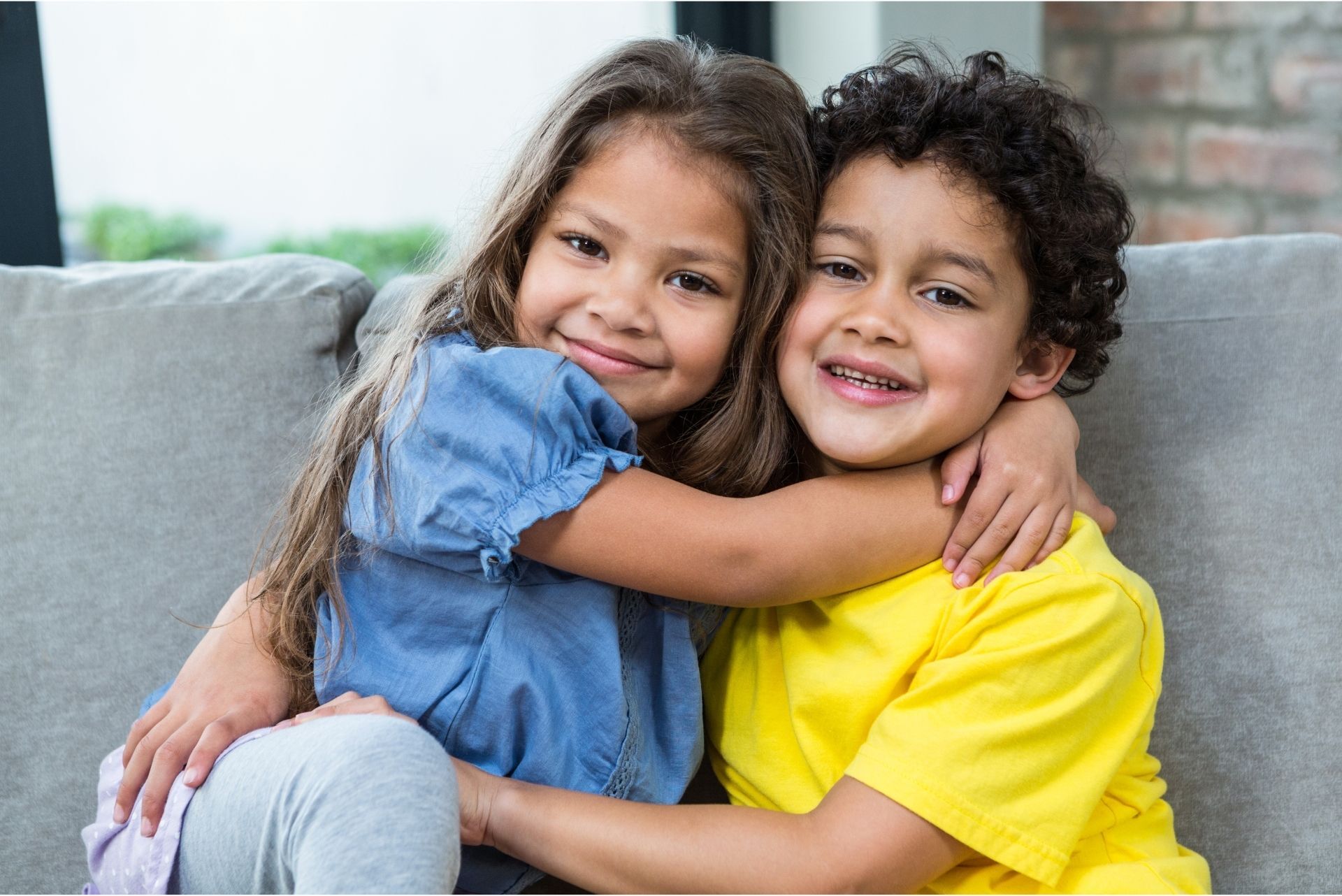
Some days, the demands of work, household tasks, and the general busyness of life make it easy to rush past the small but meaningful moments. A child’s playful curiosity, a burst of laughter over something silly, or sunlight stretching across a living room can all come and go without being fully noticed. Recently, there has been a renewed effort to pause more often—to feel the warmth of the sun, savor a quiet cup of coffee, or simply take a deep breath. These small acts of slowing down highlight just how much there is to appreciate, and how much richer life becomes when those moments are truly taken in.
Dear CPI,
I have great kids (7 and 9) who are polite, get along with each other, and don’t have any behavior issues (yet). I’d like some ideas, though, about how to teach them to be grateful for what they have, instead of always wanting or feeling entitled to have more things. Do you have any tips for me?
— Ernesto
Dear Ernesto,
What a great question! It’s common for children – and many adults – to behave in ways that appear self-centered, materialistic, or constantly dissatisfied. It might seem like these behaviors are part of human nature or our society that we have to accept, but they are actually learned behaviors that can be reduced or replaced with gratitude. In fact, research shows that having an attitude of gratitude changes the structure of the human brain, making people feel happier, healthier, and more peaceful. Here are some tips to try:
Set a good example. Take time to notice the things you are grateful for, even if it’s something that seems trivial. Talk to your children about the peace, satisfaction, or happiness that you feel when you watch the sunset, smell your favorite food, read a good book, get their help with chores, or put on your sweatpants and slippers at the end of a long day. Avoid complaining or criticizing other people or things, especially in front of your children. Remember they are constantly watching, listening, and learning from you – even when it seems like they are ignoring you.
Make gratitude a daily habit. Ask your children to identify one thing they are grateful or thankful for each day. Younger children might enjoy drawing pictures of the things that make them feel content and peaceful. Older children can also draw, write in a journal or take pictures. Have conversations about the things they appreciate during mealtimes, bedtime, or as you’re going about your daily activities. These simple steps can teach children to notice and find joy in the everyday moments of their lives.
Give them responsibilities at home. Running a household and raising children is hard work! Give children age-appropriate chores and responsibilities to teach them that family life runs more smoothly when everyone pitches in. Give descriptive praise and positive attention to show your appreciation when they help with laundry, dishes, cleaning, feeding pets, or doing yardwork. This will encourage them to continue being helpful, as well as increase the likelihood that they’ll be grateful – instead of taking it for granted – when other people do things for them.
Encourage children to help and care for others. Receiving gratitude from other people gives children the chance to feel good about being kind, helpful, and generous. Try to find an activity your whole family can help with – provide baked goods for a school fundraiser, serve meals at a shelter, pick up trash in your community, or visit seniors who live alone without family close by. Involve your children in picking the activity and talk about how it will be helpful. Acknowledge their helpfulness during the activity, then talk to them afterwards about how they felt. Encourage your children to continue helping others without expecting anything in return, so that they learn to receive gratitude throughout the year.
Final Thoughts: Take a few moments each day to notice the people and experiences that make you happy, content and peaceful. Express your appreciation and gratitude, and teach your children to do the same. Make this a daily habit, and you’ll find that gratitude becomes contagious.
EN ESPANOL
A veces, las exigencias del trabajo, las tareas domésticas y el ajetreo diario hacen que sea fácil pasar por alto los pequeños pero significativos momentos. La curiosidad juguetona de un niño, una carcajada ante algo gracioso o la luz del sol que inunda el salón pueden ir y venir sin que nos demos cuenta. Últimamente, se ha renovado el interés por detenerse más a menudo: sentir el calor del sol, saborear una taza de café tranquilamente o simplemente respirar hondo. Estos pequeños gestos de bajar el ritmo ponen de manifiesto la gran cantidad de cosas que hay para apreciar y lo mucho más rica que se vuelve la vida cuando se disfruta plenamente de esos momentos.
Estimada CPI
Tengo hijos amables (de las edades de 7 y 9) que son bien educados, se llevan bien entre sí y no tienen ningún problema de conducta (todavía). Sin embargo, me gustaría algunas ideas sobre cómo enseñarles a estar agradecidos por lo que tienen, en lugar de siempre querer algo o sentirse con derecho a tener más cosas. ¿Tiene algún consejo para mí?
— Ernesto
Estimado Ernesto,
¡Qué gran pregunta! Es común que los niños, y muchos adultos, se comporten de manera egocéntrica, materialista o constantemente insatisfecha. Puede parecer que estas conductas son parte de la naturaleza humana o de nuestra sociedad que tenemos que aceptar, pero en realidad son conductas aprendidas que pueden reducirse o reemplazarse con gratitud. De hecho, las investigaciones muestran que tener una actitud de gratitud cambia la estructura del cerebro humano, haciendo que las personas se sientan más felices, saludables y pacíficas. Aquí hay algunos consejos para probar:
Dé un buen ejemplo. Tómese el tiempo para notar las cosas por las que está agradecido, incluso si es algo que parece trivial. Hable con sus hijos sobre la paz, la satisfacción o la felicidad que siente cuando ve la puesta de sol, huele su comida favorita, lee un buen libro, obtiene la ayuda de ellos con las tareas del hogar o se pone los pantalones cómodos y las pantuflas al final de un largo día. Evite quejarse o criticar a otras personas o cosas, especialmente frente a sus hijos. Recuerde que están constantemente mirando, escuchando y aprendiendo de usted, incluso cuando parece que le están ignorando.
Haga de la gratitud un hábito diario. Pídales a sus hijos que identifiquen una cosa por la que estén agradecidos o agradecidos cada día. Los niños más pequeños pueden disfrutar haciendo dibujos de las cosas que los hacen sentir contentos y en paz. Los niños mayores también pueden dibujar, escribir en un diario o tomar fotografías. Tenga conversaciones sobre las cosas que aprecian durante las comidas, la hora de acostarse o mientras realiza sus actividades diarias. Estos sencillos pasos pueden enseñar a los niños a notar y encontrar alegría en los momentos cotidianos de sus vidas.
Deles responsabilidades en casa. ¡Administrar un hogar y criar hijos es un trabajo duro! Dé a los niños tareas y responsabilidades apropiadas para su edad para enseñarles que la vida familiar funciona mejor cuando todos colaboran. Elogie descriptivamente y preste atención positiva para mostrar su agradecimiento cuando ayuden a lavar la ropa, lavar los platos, limpiar, alimentar a las mascotas o hacer trabajos de jardinería. Esto los alentará a seguir siendo útiles, así como también aumentará la probabilidad de que estén agradecidos, en lugar de darlo por sentado, cuando otras personas hagan cosas por ellos.
Anime a los niños a ayudar y cuidar a los demás. Recibir gratitud de otras personas les da a los niños la oportunidad de sentirse bien por ser amables, serviciales y generosos. Trate de encontrar una actividad en la que toda su familia pueda ayudar: contribuir productos horneados para una recaudación de fondos escolar, servir comidas en un refugio, recoger basura en su comunidad o visitar a personas mayores que viven solas sin familia cerca. Involucre a sus hijos en la elección de la actividad y hable sobre cómo será útil. Reconozca su ayuda durante la actividad, luego hable con ellos sobre cómo se sintieron. Anime a sus hijos a seguir ayudando a los demás sin esperar nada a cambio, para que aprendan a recibir gratitud durante todo el año.
Reflexiones finales: Tómese unos momentos cada día para notar a las personas y experiencias que lo hacen feliz, contento y pacífico. Exprese su aprecio y gratitud, y enseñe a sus hijos a hacer lo mismo. Haga de esto un hábito diario y descubrirá que la gratitud se vuelve contagiosa.










